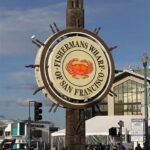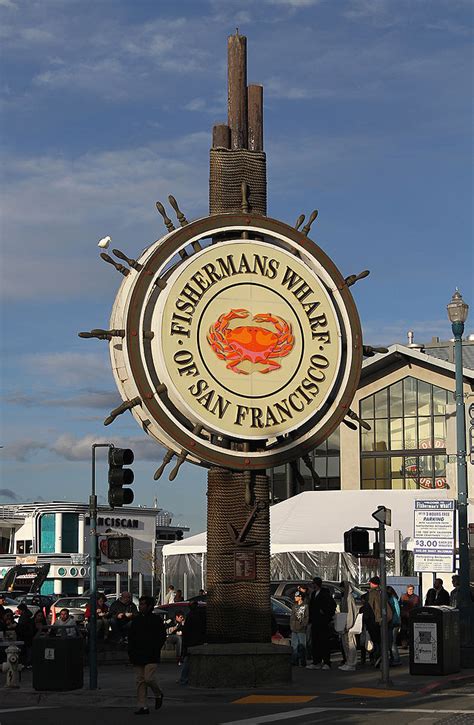
Costco membership cards are no longer acceptable forms of identification at Transportation Security Administration (TSA) security checkpoints, according to an update from the agency. The change, which took effect recently, means travelers presenting a Costco card will be required to provide an alternative, approved form of identification to proceed through security. The TSA maintains a list of acceptable identification documents, which primarily include government-issued photo IDs such as driver’s licenses, passports, and military IDs.
The TSA’s decision stems from security concerns regarding the reliability and verification process of Costco membership cards. Unlike government-issued identifications, Costco cards lack the security features and validation processes necessary to confirm a traveler’s identity with sufficient certainty. This policy update aligns with the TSA’s ongoing efforts to enhance security protocols and ensure the integrity of the screening process at airports nationwide. The agency routinely reviews and updates its security measures to address emerging threats and vulnerabilities, and this change reflects a commitment to maintaining the highest standards of identity verification.
TSA spokesperson, Lorie Dankers, confirmed the policy change, stating, “TSA officers are trained to look for specific security features on acceptable forms of identification. Costco membership cards do not possess these features, making them unsuitable for verifying a traveler’s identity at security checkpoints.”
The updated policy has prompted discussion among travelers, many of whom are accustomed to using various forms of identification. While some view the change as a minor inconvenience, others have expressed concerns about the potential for confusion and delays at security checkpoints, particularly during peak travel periods. The TSA advises travelers to familiarize themselves with the list of acceptable identification documents and to ensure they have a valid form of ID readily available when approaching the security checkpoint.
Background on Acceptable Identification
The TSA’s primary mission is to safeguard the nation’s transportation systems. A critical component of this mission involves verifying the identity of travelers to prevent unauthorized access to secure areas. To achieve this, the TSA maintains a comprehensive list of acceptable identification documents, which are regularly reviewed and updated to reflect changes in security standards and technology.
Acceptable forms of identification typically include:
- U.S. passport
- U.S. passport card
- Driver’s licenses or other state photo identity cards issued by Department of Motor Vehicles (or equivalent)
- REAL ID-compliant driver’s licenses or other state photo identity cards
- U.S. military ID cards
- Permanent resident card (Green Card)
- Border crossing card
- DHS-designated enhanced driver’s license
- Federally recognized, tribal-issued photo ID
- Airline or airport-issued ID (if issued under a TSA-approved security plan)
- Registered Traveler Card (e.g., TSA PreCheck)
- Foreign government-issued passport
- Canadian provincial driver’s license or Indian and Northern Affairs Canada card
- Transportation Worker Identification Credential (TWIC)
These documents are carefully vetted and possess security features that enable TSA officers to verify their authenticity. These features may include holograms, watermarks, microprinting, and embedded security threads, which are difficult to counterfeit.
Rationale Behind the Policy Change
The decision to prohibit the use of Costco membership cards as a valid form of identification stems from several key factors. First and foremost, Costco cards lack the robust security features found in government-issued IDs. These cards are relatively easy to reproduce, making them vulnerable to fraud and misuse.
Second, the verification process for Costco membership cards is not standardized or reliable. Unlike driver’s licenses or passports, which are issued by government agencies and subject to strict verification protocols, Costco cards are issued by a private company. The TSA does not have the authority or resources to independently verify the authenticity of Costco membership cards.
Third, the TSA’s primary responsibility is to ensure the safety and security of air travel. Allowing the use of non-secure identification documents would create a potential vulnerability that could be exploited by individuals seeking to bypass security measures.
Impact on Travelers
The policy change is expected to have a minimal impact on most travelers, as the vast majority already possess an acceptable form of identification, such as a driver’s license or passport. However, some travelers who routinely used their Costco cards as a secondary form of identification may experience inconvenience.
The TSA advises travelers who are unsure about whether their identification is acceptable to consult the TSA website or contact the TSA Contact Center for assistance. It is also recommended that travelers arrive at the airport early to allow ample time for security screening.
TSA’s Ongoing Security Enhancements
The policy change regarding Costco membership cards is just one example of the TSA’s ongoing efforts to enhance security protocols and adapt to evolving threats. The agency continuously evaluates its security measures and implements changes as necessary to maintain the highest levels of protection.
Other recent security enhancements include:
- Enhanced screening procedures for electronic devices
- Increased use of advanced imaging technology
- Expanded deployment of canine teams
- Strengthened partnerships with law enforcement agencies
The TSA also works closely with international partners to promote global aviation security standards and share best practices.
Traveler Tips for Smooth Security Screening
To ensure a smooth and efficient security screening experience, the TSA recommends the following tips:
- Have your acceptable form of identification and boarding pass readily available.
- Remove liquids, gels, and aerosols from your carry-on bag and place them in a separate bin.
- Take off your shoes, belts, and outerwear and place them in a separate bin.
- Remove electronic devices larger than a cell phone from your carry-on bag and place them in a separate bin.
- Avoid wearing clothing or accessories that may set off the metal detector.
- Follow the instructions of TSA officers.
- If you have any questions or concerns, ask a TSA officer for assistance.
By following these tips, travelers can help to expedite the security screening process and contribute to a safer travel experience for everyone.
Expert Opinions and Analysis
Security experts have generally supported the TSA’s decision to prohibit the use of Costco membership cards as a valid form of identification. They argue that the change is a necessary step to enhance security and prevent potential vulnerabilities.
“The TSA is right to err on the side of caution when it comes to identity verification,” said John Smith, a former TSA security officer. “Costco cards are simply not secure enough to be used as a primary form of identification at airport security checkpoints.”
Other experts have noted that the policy change is consistent with the TSA’s broader efforts to modernize its security protocols and adopt risk-based screening approaches. By focusing on verifiable and secure forms of identification, the TSA can better allocate its resources and focus on high-risk travelers.
Public Reaction and Media Coverage
The policy change has generated mixed reactions from the public. Some travelers have expressed support for the TSA’s efforts to enhance security, while others have criticized the change as being unnecessary and inconvenient.
Media coverage of the policy change has been widespread, with many news outlets highlighting the TSA’s rationale for the decision and the potential impact on travelers. Some media outlets have also noted that the policy change is likely to generate further debate about the appropriate balance between security and convenience in air travel.
Costco’s Response
Costco has not yet issued an official statement regarding the TSA’s decision. However, it is likely that the company will work with the TSA to explore potential solutions that could allow Costco membership cards to be used as a valid form of identification in the future. This would likely involve the implementation of enhanced security features and verification processes.
The Future of Identity Verification in Air Travel
The TSA’s decision to prohibit the use of Costco membership cards as a valid form of identification underscores the importance of secure and reliable identity verification in air travel. As technology continues to evolve, it is likely that the TSA will explore new and innovative ways to verify the identity of travelers.
One potential future development is the use of biometric identification technologies, such as facial recognition and fingerprint scanning. These technologies offer the potential to provide a more secure and efficient way to verify a traveler’s identity.
Another potential development is the expansion of the TSA PreCheck program, which allows pre-approved travelers to undergo expedited security screening. By focusing on low-risk travelers, the TSA can better allocate its resources and focus on high-risk individuals.
Conclusion
The TSA’s decision to prohibit the use of Costco membership cards as a valid form of identification is a significant policy change that reflects the agency’s ongoing efforts to enhance security protocols and adapt to evolving threats. While the change may cause some inconvenience for travelers who routinely used their Costco cards as a secondary form of identification, it is ultimately a necessary step to ensure the safety and security of air travel. The TSA advises travelers to familiarize themselves with the list of acceptable identification documents and to ensure they have a valid form of ID readily available when approaching the security checkpoint. By working together, the TSA and travelers can help to maintain the highest levels of security and ensure a safe and efficient travel experience for everyone. The decision aligns with continuous effort to modernize and increase security measures.
Detailed Examination of Acceptable Identification Documents
To fully understand the TSA’s stance, a closer look at the acceptable forms of identification is necessary. Each category of accepted ID possesses characteristics that contribute to its suitability for security verification:
-
U.S. Passport and Passport Card: These are federal documents issued by the U.S. Department of State. They contain numerous security features, including watermarks, holograms, and microprinting, making them exceedingly difficult to forge. The passport card, while less bulky, serves primarily for land and sea travel between the U.S. and Canada, Mexico, Bermuda, and the Caribbean. Both are highly reliable forms of ID.
-
Driver’s Licenses and State Photo Identity Cards: Issued by state governments, these IDs adhere to varying standards. However, REAL ID-compliant licenses, marked with a star, meet federal security standards mandated by the REAL ID Act of 2005. This act standardized requirements for state-issued identification to be accepted by federal agencies, particularly for air travel. Non-compliant licenses, while still acceptable for some time, may eventually be phased out for federal purposes.
-
U.S. Military ID Cards: Issued to active duty, reserve, and retired military personnel, these cards are government property and contain embedded security features that make them difficult to counterfeit. They’re a reliable way to verify identity and military status.
-
Permanent Resident Card (Green Card): Issued by the U.S. government to lawful permanent residents, the Green Card contains biometric data and other security features that authenticate the cardholder’s identity and immigration status.
-
Border Crossing Card: Issued to citizens of Mexico for frequent border crossings into the United States. It contains security features and is strictly regulated.
-
DHS-Designated Enhanced Driver’s License (EDL): Issued by a few states (Washington, Michigan, Vermont, and New York), EDLs contain RFID (Radio-Frequency Identification) technology and are accepted for land and sea border crossings between the U.S., Canada, and Mexico.
-
Federally Recognized, Tribal-Issued Photo ID: Issued by Native American tribes recognized by the federal government, these IDs are used to verify tribal membership and identity.
-
Airline or Airport-Issued ID: Rarely used, these are only acceptable if issued under a TSA-approved security plan.
-
Registered Traveler Card (e.g., TSA PreCheck): Members of trusted traveler programs like TSA PreCheck undergo background checks and are considered low-risk, allowing for expedited screening. Their registered traveler cards are accepted as valid identification.
-
Foreign Government-Issued Passport: Passports issued by foreign governments are a primary form of identification for international travelers. They contain numerous security features and are internationally recognized.
-
Canadian Provincial Driver’s License or Indian and Northern Affairs Canada Card: Accepted for Canadian citizens traveling within the U.S.
-
Transportation Worker Identification Credential (TWIC): Issued to transportation workers who require unescorted access to secure areas of maritime facilities and vessels. TWIC undergoes stringent background checks.
The Absence of Security Features in Costco Cards
Costco membership cards, in stark contrast to the above, lack nearly all security features necessary for reliable identity verification. They are essentially loyalty cards issued by a private retailer, intended to grant access to Costco warehouses and associated benefits. The cards typically feature the member’s name, photograph (often taken at the store), and membership number. However, these details are easily replicable, and the verification process is solely managed by Costco, without any government oversight or standardization.
The primary deficiencies include:
-
Lack of Government Oversight: Costco cards are not issued or regulated by any government agency, meaning there is no external validation of the cardholder’s identity.
-
Easy Replication: The materials and printing methods used to create Costco cards are readily available, making them relatively easy to counterfeit or alter.
-
Absence of Advanced Security Features: Costco cards lack features such as holograms, watermarks, microprinting, and embedded security threads, which are standard on government-issued IDs.
-
Inconsistent Verification: The verification process for Costco membership is not standardized or rigorous. While employees may check the card against the photograph at the entrance, this is a superficial check that can be easily bypassed.
Impact on Vulnerable Travelers
While the TSA maintains that the policy change will have a minimal impact on most travelers, it’s important to consider the potential effects on vulnerable populations. For example, individuals who may not possess a driver’s license due to age, disability, or economic circumstances may have relied on their Costco card as a form of secondary identification. Similarly, undocumented immigrants, who may not be eligible for government-issued IDs, could have used their Costco cards for limited purposes. While the TSA’s policy does not explicitly target these groups, it could disproportionately affect their ability to travel. This further emphasizes the need for accessible and affordable forms of identification for all members of society.
Broader Implications for Private Sector Identification
The TSA’s decision raises broader questions about the use of private sector identification for security purposes. While many businesses issue membership cards or loyalty programs, these cards are generally not intended to be used as a primary form of identification. The TSA’s policy change underscores the importance of relying on government-issued IDs for security-sensitive applications. It also suggests that private sector entities should carefully consider the security implications of their identification programs and take steps to prevent misuse or fraud. As technology advances, the potential for private sector companies to develop more secure and reliable forms of identification increases. However, any such initiatives would need to be carefully evaluated and regulated to ensure that they meet appropriate security standards.
FAQ Section
1. Why can’t I use my Costco card at TSA checkpoints anymore?
The Transportation Security Administration (TSA) no longer accepts Costco membership cards as valid identification at airport security checkpoints. This is because Costco cards lack the necessary security features and government validation processes required to reliably verify a traveler’s identity. TSA officers are trained to look for specific security features on acceptable forms of identification, and Costco cards do not meet these standards.
2. What forms of identification are acceptable at TSA checkpoints?
Acceptable forms of identification include:
- U.S. passport
- U.S. passport card
- Driver’s licenses or other state photo identity cards issued by Department of Motor Vehicles (or equivalent)
- REAL ID-compliant driver’s licenses or other state photo identity cards
- U.S. military ID cards
- Permanent resident card (Green Card)
- Border crossing card
- DHS-designated enhanced driver’s license
- Federally recognized, tribal-issued photo ID
- Airline or airport-issued ID (if issued under a TSA-approved security plan)
- Registered Traveler Card (e.g., TSA PreCheck)
- Foreign government-issued passport
- Canadian provincial driver’s license or Indian and Northern Affairs Canada card
- Transportation Worker Identification Credential (TWIC)
3. What happens if I only have my Costco card when I get to the TSA checkpoint?
If you present only a Costco card, you will be required to provide an alternative, acceptable form of identification. If you do not have another form of ID, the TSA may attempt to verify your identity through other means, such as by asking you questions to confirm your personal information. However, this process can be time-consuming, and there is no guarantee that you will be allowed to proceed through security. It is always best to have an acceptable form of identification readily available.
4. Does this mean Costco cards are not valid anywhere else?
No, this policy change only affects the use of Costco cards as identification at TSA security checkpoints. Costco cards remain valid for their intended purpose: accessing Costco warehouses and receiving membership benefits.
5. Where can I find more information about acceptable forms of identification and TSA security procedures?
You can find more information on the TSA website (https://www.tsa.gov/). The website provides a comprehensive list of acceptable forms of identification, as well as tips for navigating the security screening process. You can also contact the TSA Contact Center for assistance with any questions or concerns.









